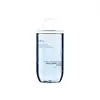What's inside
What's inside
 Key Ingredients
Key Ingredients

 Benefits
Benefits

 Concerns
Concerns

No concerns
 Ingredients Side-by-side
Ingredients Side-by-side

Water
Skin ConditioningAloe Barbadensis Leaf Juice
Skin ConditioningPentylene Glycol
Skin ConditioningPropanediol
SolventVitis Vinifera Fruit Water
Skin ConditioningSodium Hyaluronate
HumectantBeta Vulgaris Root Extract
Skin ConditioningFicus Carica Fruit Extract
HumectantHydrolyzed Corn Starch
HumectantSaccharide Isomerate
HumectantSodium Levulinate
Skin ConditioningXanthan Gum
Emulsifying1,2-Hexanediol
Skin ConditioningLactic Acid
BufferingCitric Acid
BufferingSodium Citrate
BufferingPotassium Sorbate
PreservativeSodium Benzoate
MaskingWater, Aloe Barbadensis Leaf Juice, Pentylene Glycol, Propanediol, Vitis Vinifera Fruit Water, Sodium Hyaluronate, Beta Vulgaris Root Extract, Ficus Carica Fruit Extract, Hydrolyzed Corn Starch, Saccharide Isomerate, Sodium Levulinate, Xanthan Gum, 1,2-Hexanediol, Lactic Acid, Citric Acid, Sodium Citrate, Potassium Sorbate, Sodium Benzoate
Water
Skin ConditioningMethylpropanediol
Solvent1,2-Hexanediol
Skin ConditioningSea Water
HumectantGlycerin
HumectantBetaine
HumectantAllantoin
Skin ConditioningButylene Glycol
HumectantCaprylyl Glycol
EmollientEthylhexylglycerin
Skin ConditioningPanthenol
Skin ConditioningXanthan Gum
EmulsifyingMalachite Extract
AntioxidantDisodium EDTA
Hydrolyzed Hyaluronic Acid
HumectantPentylene Glycol
Skin ConditioningXylitylglucoside
HumectantAnhydroxylitol
HumectantSodium Hyaluronate
HumectantXylitol
HumectantPotassium Hyaluronate
Skin ConditioningGlucose
HumectantHydrolyzed Sodium Hyaluronate
Skin ConditioningSodium Acetylated Hyaluronate
HumectantHydroxypropyltrimonium Hyaluronate
Sodium Hyaluronate Crosspolymer
HumectantDimethylsilanol Hyaluronate
HumectantHydrolyzed Calcium Hyaluronate
Skin ConditioningHyaluronic Acid
HumectantSodium Sulfated Hyaluronate
EmollientHamamelis Virginiana Extract
AntiseborrhoeicChamaecyparis Obtusa Leaf Extract
Skin ConditioningSodium Stearoyl Hyaluronate
Skin ConditioningSodium Oleoyl Hyaluronate
Skin ConditioningWater, Methylpropanediol, 1,2-Hexanediol, Sea Water, Glycerin, Betaine, Allantoin, Butylene Glycol, Caprylyl Glycol, Ethylhexylglycerin, Panthenol, Xanthan Gum, Malachite Extract, Disodium EDTA, Hydrolyzed Hyaluronic Acid, Pentylene Glycol, Xylitylglucoside, Anhydroxylitol, Sodium Hyaluronate, Xylitol, Potassium Hyaluronate, Glucose, Hydrolyzed Sodium Hyaluronate, Sodium Acetylated Hyaluronate, Hydroxypropyltrimonium Hyaluronate, Sodium Hyaluronate Crosspolymer, Dimethylsilanol Hyaluronate, Hydrolyzed Calcium Hyaluronate, Hyaluronic Acid, Sodium Sulfated Hyaluronate, Hamamelis Virginiana Extract, Chamaecyparis Obtusa Leaf Extract, Sodium Stearoyl Hyaluronate, Sodium Oleoyl Hyaluronate
 Reviews
Reviews

Ingredients Explained
These ingredients are found in both products.
Ingredients higher up in an ingredient list are typically present in a larger amount.
1,2-Hexanediol is a synthetic liquid and another multi-functional powerhouse.
It is a:
- Humectant, drawing moisture into the skin
- Emollient, helping to soften skin
- Solvent, dispersing and stabilizing formulas
- Preservative booster, enhancing the antimicrobial activity of other preservatives
Pentylene glycol is typically used within a product to thicken it. It also adds a smooth, soft, and moisturizing feel to the product. It is naturally found in plants such as sugar beets.
The hydrophilic trait of Pentylene Glycol makes it a humectant. As a humectant, Pentylene Glycol helps draw moisture from the air to your skin. This can help keep your skin hydrated.
This property also makes Pentylene Glycol a great texture enhancer. It can also help thicken or stabilize a product.
Pentylene Glycol also acts as a mild preservative and helps to keep a product microbe-free.
Some people may experience mild eye and skin irritation from Pentylene Glycol. We always recommend speaking with a professional about using this ingredient in your routine.
Pentylene Glycol has a low molecular weight and is part of the 1,2-glycol family.
Learn more about Pentylene GlycolSodium Hyaluronate is hyaluronic acid's salt form. It is commonly derived from the sodium salt of hyaluronic acid.
Like hyaluronic acid, it is great at holding water and acts as a humectant. This makes it a great skin hydrating ingredient.
Sodium Hyaluronate is naturally occurring in our bodies and is mostly found in eye fluid and joints.
These are some other common types of Hyaluronic Acid:
Learn more about Sodium HyaluronateWater. It's the most common cosmetic ingredient of all. You'll usually see it at the top of ingredient lists, meaning that it makes up the largest part of the product.
So why is it so popular? Water most often acts as a solvent - this means that it helps dissolve other ingredients into the formulation.
You'll also recognize water as that liquid we all need to stay alive. If you see this, drink a glass of water. Stay hydrated!
Learn more about WaterXanthan gum is used as a stabilizer and thickener within cosmetic products. It helps give products a sticky, thick feeling - preventing them from being too runny.
On the technical side of things, xanthan gum is a polysaccharide - a combination consisting of multiple sugar molecules bonded together.
Xanthan gum is a pretty common and great ingredient. It is a natural, non-toxic, non-irritating ingredient that is also commonly used in food products.
Learn more about Xanthan Gum